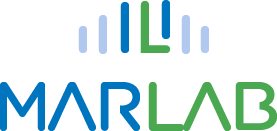FUEL ANALYSIS SERVICES
Bunker fuels vary in quality and specification, and directly impact your vessel’s integrity and operation, as well as human health and the environment. Through our network of ISO 17025 accredited-only laboratories, our team of fuel experts supports our clients through all fuel analysis needs to safeguard their assets and the environment, while ensuring compliance to the latest International Maritime Organization’s (IMO) regulations and any other local requirements.
Our Fuel Oil Testing Services include:
- Sampling kits and equipment.
- Bunker testing to the ISO8217 fuel standard and technical advisory available for the test results.
- Integrated testing services that cover a range of tests by default.
- Additional fuel testing services to supplement a more in-depth analysis as required.
- Worldwide logistics network with detailed delivery monitoring and user notifications.


ADDITIONAL FUEL TESTING SERVICES
Working with its partners, MARLAB has built a comprehensive list of Additional Fuel Tests that enables us to conduct further testing on non-compliant fuel samples. Through additional testing, our team of experts can identify the root of the problem and then support clients with operational recommendations, corrective action plans and bunkering disputes.
SLUDGE AND WAX PRECIPITATION
As of January 2020, the International Maritime Organization (IMO) has implemented a maximum limit of 0.50% on sulphur content in the marine fuel oil used outside the Emission Controlled Areas (ECA), also known as IMO 2020. Limits inside the ECA’s remain to the stricter 0.1% imposed earlier. This has generated a need for extended hydrocracking on these heavy fuels to reduce the sulphur content, while leading to an increase in more paraffinic (waxy) content in diesel fuels. The wax content can precipitate when the fuel temperature drops below the Cold Filter Plugging Point, or any equivalent measure, which can lead to excessive sludge at the separators/purifiers, with the potential to cause clogging and fuel transfer and handling difficulties.
The ISO8217:2017 limits fail to identify the tendency of the fuel to form precipitates and as such further testing is required. The flow settings and purifier temperature are adjusted based on the fuel rheological properties (viscosity and density), but newer fuels are seen to require higher than anticipated temperatures to achieve similar results. Testing for the Wax Appearance and Disappearance Temperature identifies the temperature limit at the purifier inlet for your fuel of choice to ensure smooth and optimum operation.
Other similar tests that are provided on an as-needed basis driven by the ambient and storing conditions of fuel, include the Cold Filter Plugging Point (ISO309/ASTM D6371), Pour Point and Cloud Point (ISO 3015) tests.
STABILITY AND COMPATIBILITY
Residual marine fuels vary greatly in their chemical composition and that depends on the source of crude oil and the various manufacturing methods used to produce the desired fuel specification. Typical composition includes asphaltenes, which cover a wide range of heavier hydrocarbon molecules and can exist as suspended solids at ambient conditions, resins and liquid hydrocarbons which are naturally of lower molecular weight. The nature of the liquid component of fuels determines the capability of the solution to maintain solids in suspension. When solids cannot stay suspended in a colloidal state, they drop out as sludge and the fuel is considered unstable, with potentially serious operational implications. The ISO 8217:2017 fuel standard specifies that fuels must be stable and is therefore the responsibility of the fuel suppliers to provide stable fuels.
Two, rather stable, fuels can become unstable when mixed, as in the case after bunkering. Even though fuel segregation might be practiced onboard, common piping and machinery will inevitably mix the different fuels together. As such fuel compatibility is a handling issue and it is therefore the responsibility of the operator to investigate the ability of two fuels forming a stable mix when commingled.
A range of tests exist to investigate the fuel stability and compatibility. These tests analyze the ability of a fuel, or a mixture of fuels, to resist asphaltenes dropping out of suspension and forming sludge. Tests conducted by MARLAB are based on Industry Standards and include Asphaltene Content (ASTM 6560), Insolubles, Total Sediment (TSE, TSP, TSA – ISO 10307), Separability Number (Reverse Stability Number – ASTM 7061), P-ratio (ASTM D7060) and Spot Test (ATM D4740).
CHEMICAL CONTAMINATION
Unfortunately, chemical contamination of residual and distillate fuels is often a reality with implications ranging from environmental and health concerns to severe operational and economic consequences.
MARLAB is committed to a proactive detection of concerning substances to empower our clients to implement actions before the environmental impact and without taking the financial hit. Our approach is based on a cost-effective yet quick and thorough, multi-level screening of known harmful substances. Once detection is confirmed or further concerns are present, we employ more advanced Gas Chromatography and Mass Spectrometry (GC/MS) technologies such as ASTM D7845, Acid Extraction or other vendor-specific proprietary techniques to determine the true nature of the contaminants.
LUBRICITY
The ISO8217:2017 fuel standard requires testing for Lubricity using method ISO 12156-1 in distillate fuels whenever the sulphur content is less than 0.05%. This is extremely relevant in the marine industry since the IMO 2020 regulation was introduced and fuels naturally being provided with very low sulphur content.
BIODIESELS - WATER CONTENT, ACIDITY AND MICROBIAL CONTAMINATION
Marine distillate fuels containing biodiesel blends behave similarly to conventional marine diesel in most respects since these blends only contain fatty acid methyl esters (FAME) to a maximum of 7%. This is a key finding to the shipping industry as it enables ship owners and operators to utilize more environmentally friendly sources of fuel without the CAPEX requirement for changes to their existing propulsion and auxiliary systems. In fact, the fuel Standard ISO8217:2017 introduced marine fuel grades that contain FAMEs. The presence of FAME’s however makes the fuels biodegradable and prone to change over time, affected by the water content, existing microbial contamination and conditions for microbial growth such as temperature and tank sedimentation. Operational concerns on aged fuel include filter clogging from insoluble products and acidification of the fuel blend leading to corrosion and excessive wear. Regular fuel testing is recommended when FAME-containing fuels are stored or used for prolonged periods of time.
Our team of experts can support clients with their fuel management plans and propose mitigating actions to effectively fight microbial contamination.

HOW DOES IT WORK?
01TEST KIT ORDERING
Once your vessels’ details have been registered on the MARLAB online platform, order test kits via the platform or by simply emailing our dedicated test kit team.
02TEST KIT DELIVERY
Test kits will be dispatched to your vessel at your port of choice, with full instructions for taking samples, and with all delivery and collection charges included.
Fuel test kits contain 20 sample bottles, sufficient for 4-5 fuel tests.
03PRICING
Test kits are provided on an all-inclusive basis that includes kit delivery, sample collection, fluid analysis and reporting.
A small upfront fee is charge for fuel tests, to ensure kits are not wasted, with the majority of the fee charged upon completion of the analysis.
04TEST SAMPLE COLLECTION
Once samples are ready for collection, simply use the automated sample collection form on our website to request your sample collection. No online access? Not a problem, use the automated PDF file that will email your details to us once completed. We will in return email you your shipping documents for all-inclusive courier collection of your sample shipment, your material safety data sheet (MSDS) and a commercial invoice.
05SAMPLE TRACKING
MARLAB offers a tracking and notification service to keep you informed of the location of your sample for peace of mind. An optional emergency service can also expedite the analysis process and yield results swiftly.
06ANALYSIS REPORTING
MARLAB offers clear and simple online reporting through its platform, in addition to your emailed reports.







